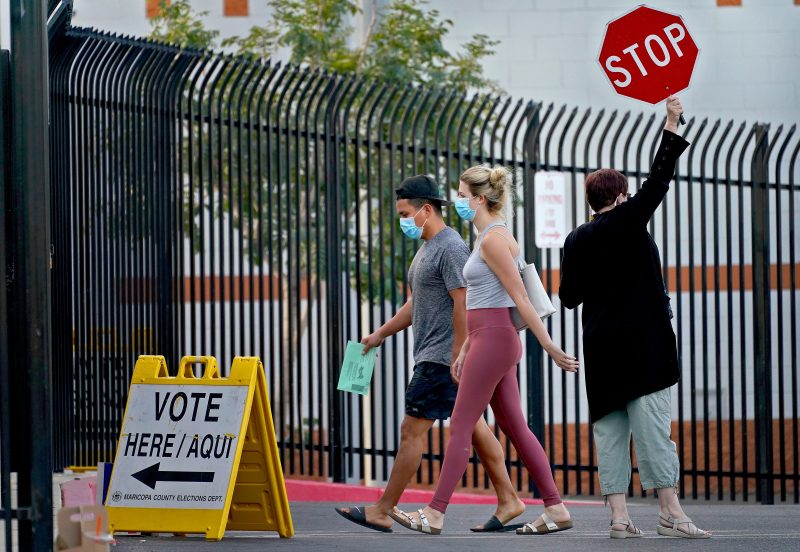In recent years, the integrity of the voting process has come under attack across the United States. One of the battlegrounds in this fight is Arizona, where schools are increasingly hesitant to serve as polling locations during elections. This reluctance stems from concerns over security, disruption to students, and liability issues that have put pressure on schools to reevaluate their role in the electoral process.
The battleground state of Arizona has been at the center of controversial voting issues, with new laws and regulations causing tension and raising questions about the safety and fairness of the voting process. Among the many challenges faced by the state is the issue of securing polling locations, with schools bearing the brunt of the burden.
Schools traditionally have served as convenient locations for polling sites due to their central and easily accessible locations within communities. However, recent incidents of violence, threats, and disruptions during elections have raised red flags regarding the safety of these sites. In response to these concerns, many schools in Arizona are opting out of hosting polling locations, citing security as a top priority.
Furthermore, the potential for disruptions to the school day poses another significant challenge for educators and administrators. With polling stations set up in school buildings, there is a risk of increased traffic, noise, and strangers on campus, which can disrupt normal school activities and create a sense of unease among students and staff. This disruption can be especially concerning for schools that prioritize the safety and well-being of their students above all else.
Additionally, liability issues have become a major deterrent for schools considering hosting polling locations. Schools fear potential legal repercussions in the event of accidents, injuries, or incidents related to election activities taking place on their premises. The financial burden and legal complexities associated with these liabilities have pushed many schools to reconsider their involvement in the electoral process.
In response to these challenges, local election officials and community leaders are exploring alternative options and solutions to ensure that every eligible voter has access to a polling location. This may involve partnering with community centers, churches, or other public facilities to serve as polling sites, alleviating the burden on schools and addressing concerns over security and disruptions.
While the decision of schools to opt out of hosting polling locations is understandable given the current climate of uncertainty and security risks, it is crucial for all stakeholders to work together to find viable solutions that uphold the integrity of the voting process and ensure that every voice is heard. By addressing concerns over security, disruptions, and liability issues, Arizona can take proactive steps to protect the right to vote and strengthen democracy in the state.

